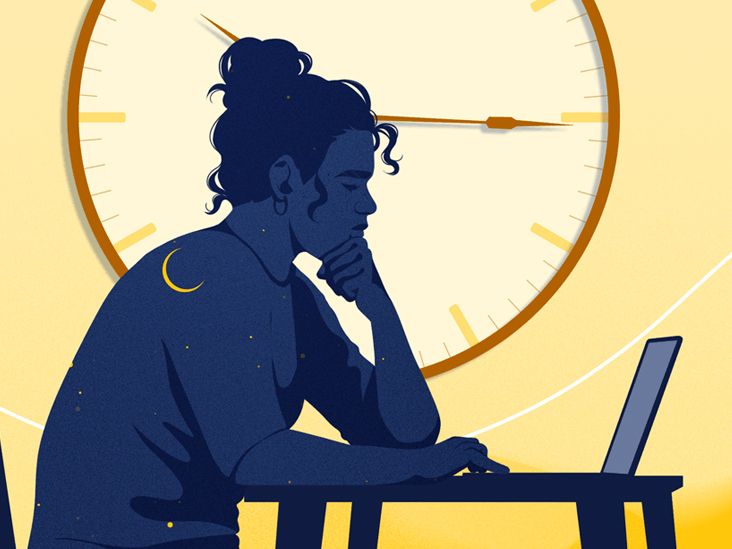
Breathe in for 4 seconds. Hold it for 7 seconds. Breathe out for 8 seconds. This is called the 4-7-8 breathing technique. It was developed by Andrew Weil as a tool to help people manage stress and anxiety.
For a while, this was the case for me. The deep breathing exercise helped me to calm myself during panic attacks and bouts of anxiety.
I discovered that steadying my breath distracted me from my spiraling thoughts. It gave me time to relax before I processed whatever was upsetting me at the moment.
But I have obsessive-compulsive disorder (OCD). For this reason, what once was an effective relaxation technique progressively became a compulsion.
After some time, I developed an almost uncontrollable urge to use the tool whenever I had obsessive thoughts.
A compulsion is a symptom of OCD. It’s an action that you perform to neutralize or relieve stress caused by obsessions.
Obsessions are persistent, unwanted, upsetting, and intrusive thoughts.
I’ve had obsessive thoughts around hurting other people, being hurt, and hurting myself. These aren’t things I want to do or even think about doing — these are thoughts beyond my control.
At some point in my life, I was convinced that these thoughts alone would lead to awful things manifesting, from natural disasters to sexual assaults.
Many people with OCD believe performing compulsions will prevent something bad from happening, whether it’s a panic attack or an accident.
That’s why I engaged in a number of compulsions to soothe these intrusive thoughts, or at least, soothe the distress they caused me.
There are many types of compulsions. Mine have included pacing up and down a room and flexing my wrists. These seemingly random acts usually give me temporary relief. Later, however, my obsessive thoughts will return.
I learned the 4-7-8 breathing technique to calm myself when I had spiraling thoughts or during panic attacks.
Although the relaxation technique worked initially, I eventually became convinced that I couldn’t relax at all unless I breathed in a specific way.
Ultimately, I found myself facing an uncontrollable urge to do it whenever I felt an obsession coming on.
I realized it had become an issue when I started timing my breathing using a stopwatch to make sure I was getting the timing exactly right. Also, when I typically felt dizzy from the deep breathing exercise.
These were red flags that told me I needed to think critically about whether my go-to relaxation method was actually hurting me.
It was difficult to accept that this coping technique, which seems to have helped thousands of people, was simply not for me.
I had to wrap my head around the fact that caring for myself included letting go of something that once helped me immensely.
How does one manage OCD?
The answer varies from person to person, but talk therapy, self-care strategies, and medications are common OCD treatments.
One of the most effective OCD treatments is evidence-based exposure and response therapy (ERP).
Guided by a therapist, you’re encouraged to allow your obsessions to happen without engaging in the compulsions.
This helps you “prove” to yourself that you can manage your obsessions without acting out those compulsions, and that the world will not implode if you don’t take that specific action.
Research shows that between
As you can imagine, ERP can be exceptionally difficult.
In the short term, it may worsen anxiety symptoms. About
For me, it took all my self-control and energy to avoid engaging in these compulsions. It was like feeling itchy but resisting the urge to scratch.
In my case, ERP involved breathing regularly when the obsessions came along.
This was tougher than it sounds. It’s difficult to breathe regularly when you think it’ll worsen your anxiety, especially because anxiety affects your breathing.
After many months of working on this, I finally don’t feel the urge to engage in the 4-7-8 breathing technique when I experience an obsession.
I’ve decided to stay away from breathing exercises for now. At least until I make better progress in dealing with underlying traumas.
In the age of the internet, where our attention spans are short, and snappy advice is far more “clickable,” we’re inundated with quick fixes and simple, practical solutions to the issues that plague us.
Often, these pieces of advice are shared as if they’re universal.
The truth is that no piece of advice is accessible, applicable, and helpful for everybody. We’re unique, and different methods work for different people.
Mentally ill people are often advised to do activities like yoga or to take vitamins — unsolicited advice that’s so common it’s become something of a meme.
There’s nothing inherently wrong with yoga or vitamins, but there is something wrong with assuming one solution is a silver bullet for everyone. And, of course, giving unsolicited advice can be harmful in itself.
With conditions like OCD or anxiety disorders, these practical solutions are only half the answer. To really, truly address our symptoms, we need to dig deeper and figure out where they’re coming from.
In my case, I didn’t need to relax as much as I needed to be honest about past traumas and present coping techniques. That’s scary and difficult.
And it’s also hard to access by myself. I needed a therapist to help me through it. But learning a 5-minute breathing technique sounded far easier.
The most frustrating part of ERP has been dealing with unsolicited advice around deep breathing.
Whenever I say it doesn’t work for me, well-meaning people tell me to try another method, or they imply that I’m doing it wrong. One person even suggested that I might have asthma if the 4-7-8 method causes me to panic.
People don’t understand how a relaxation technique can become a compulsion, and I get why — how can something as simple as breathing worsen someone’s mental health?
For those who use the 4-7-8 breathing method and other deep-breathing techniques, the idea of someone being harmed by it might seem impossible. This is a reminder that what works for one person can be disastrous for another.
I’m not saying relaxation techniques never work for people with OCD.
Some methods, such as exercising and journaling, have been incredibly helpful for me, and I’ve managed to use these without developing compulsions around them.
I’ve spent a lot of time reading about what helps other people with OCD. Although this has been useful, I’ve learned that people are people, not their conditions, and what works for one person with OCD doesn’t work for everyone with OCD.
The inconvenient truth is that you’ll have to try different relaxation techniques yourself before you find something that works for you. There’s no magic formula, no template that you can replicate when it comes to self-care.
I’ve tried dozens of different methods, including grounding exercises, positive affirmations, and meditation, and many of them didn’t work. This was a time-consuming, frustrating process that made me want to throw in the towel. But by taking it slowly, I’ve managed to figure it out.
I found it helpful to approach the issue from a place of curiosity instead of urgency.
Instead of thinking, “I need to find a way to calm myself down during panic attacks,” I tried to frame it as, “Let’s try this method and see where it takes us.”
Instead of thinking “What’s wrong with me? Everyone else likes meditation — why doesn’t it work for me?” I thought, “I’m learning something new about myself.”
It’s also important to remember that relaxation techniques are just that — relaxation techniques. They help you relax, but they’re not meant to solve underlying trauma or replace therapy.
Hard as it may be, talk therapy is necessary for so many people. Although it can be a lot of work, it can pay off in the long run.
If you have OCD or if you think you might have OCD, it may be a good idea to find a therapist.
Don’t be afraid to shop around until you find a therapist who suits you — it’s important that you feel comfortable talking with them.
If possible, look for someone who has experience in treating OCD.
Lastly, if you feel as if your relaxation techniques have developed into compulsions, remember that healing is possible. It is possible to manage your OCD and find a relaxation technique that works for you. It might just take time.



